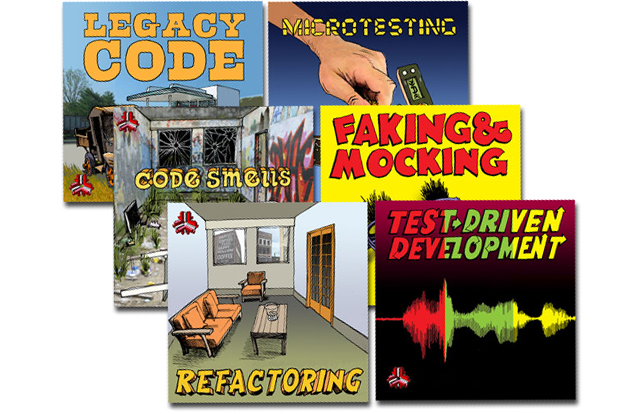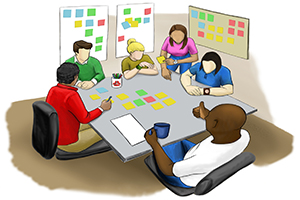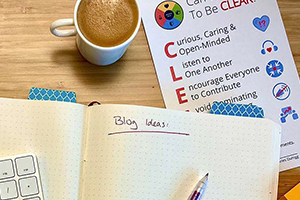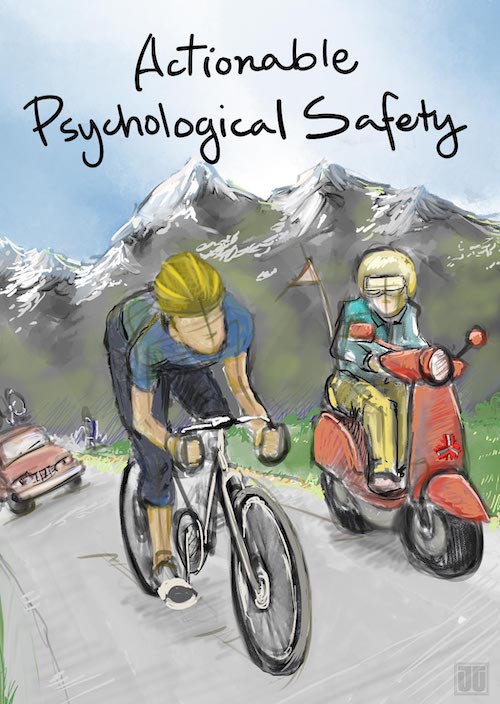
A few weeks ago, we had the pleasure of chatting about the word, “Sooner”, from our company motto, “Better Software Sooner.”
And a big piece of “Sooner” is about being able to have clear conversations sooner rather than later. For us at Industrial Logic, this is about choosing to be kind instead of being nice.
If you’re asking yourself what the difference is, let’s dig into that a bit.
By definition, the words are related, but distinctly different in a few important ways.
Nice: pleasant; agreeable; satisfactory.
Kind: the quality of being friendly, generous, and considerate.
When we consider someone, we are looking outside ourselves. We are thinking about how something might land for someone else. By thinking of their perspective, we can bridge being considerate with honesty - a kind approach.
I had the opportunity to work with a group of leaders at an organization that struggled with honest conversations, which got in the way of progress.
They started looking at their own data and realized how many meetings they were having while not really making any forward momentum. Nearly every meeting these leaders were in they would be “circling back” and not coming to any achievable outcome or resolution because they were all dancing around the truth - around what they didn’t feel comfortable saying to one another.
One of these leaders was experiencing a lot of pain points with their current DevOps process. Another leader (of software development) was frustrated with the product side of things and not having enough collaboration about what was realistic to deliver when.
And yet, no one surfaced anything. They went around and around and recognized that something had to change.
I spoke with these leaders after observing them about “nice v. kind.” While they were all being surface-level “nice” to one another, they were unable to quickly arrive at any conclusions because they were all so concerned about who they would offend or how things would land they simply wouldn’t be direct at all.
There is a way to be direct AND be kind. When we practice things like radical candor we’re able to talk about the tough things sooner.
People can change and learn.
A few months ago I was working with a leader who had what he called a “gentle approach” with his people. When mistakes were made he never confronted them. Standups looked like an endless handoff with “no blockers” when clearly blockers were everywhere since stories stood still for days. “I don’t want to micromanage them, but now nothing is getting done and all of us are frustrated - including the team,” he told me.
I referred him to the book Radical Candor by Kim Scott and gave him some examples of using some language that was kind but more direct.
The day after we met about language I attended their standup. Instead of him ignoring “no blockers” he simply said “James, it looks like this story has been stuck for a few days. Where do you need help?”
There was an awkward pause since no one was used to him actually confronting the issue. James, the stuck developer finally started talking. Two others on the team offered to collaborate briefly after the call.
Then I heard the manager say “let’s start being honest about where we’re stuck. Can we do that?”
Everyone agreed and actually seemed relieved. The manager told me after “ripping off the bandaid” of calling out the elephant in the room he felt confident about continuing to do so.
Not only did he do that the days following, but I didn’t hear a single person that week say “no blockers again. The action was simple, and the results were impressive.
In the words of Brené Brown, to be clear is to be kind.
In what way can you be more clear and kind sooner?
Related Discussion:
We recently had an open discussion on this topic.






